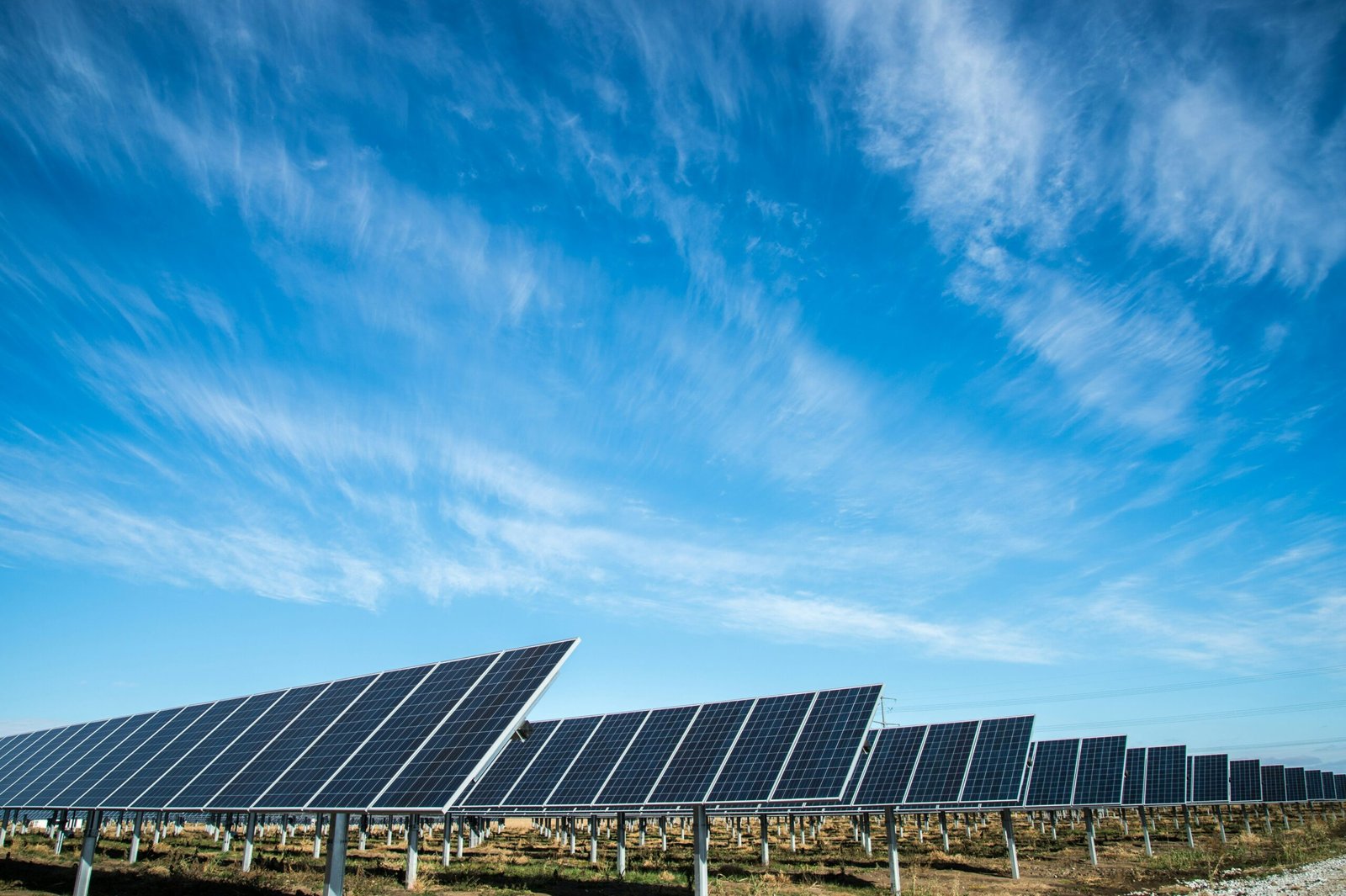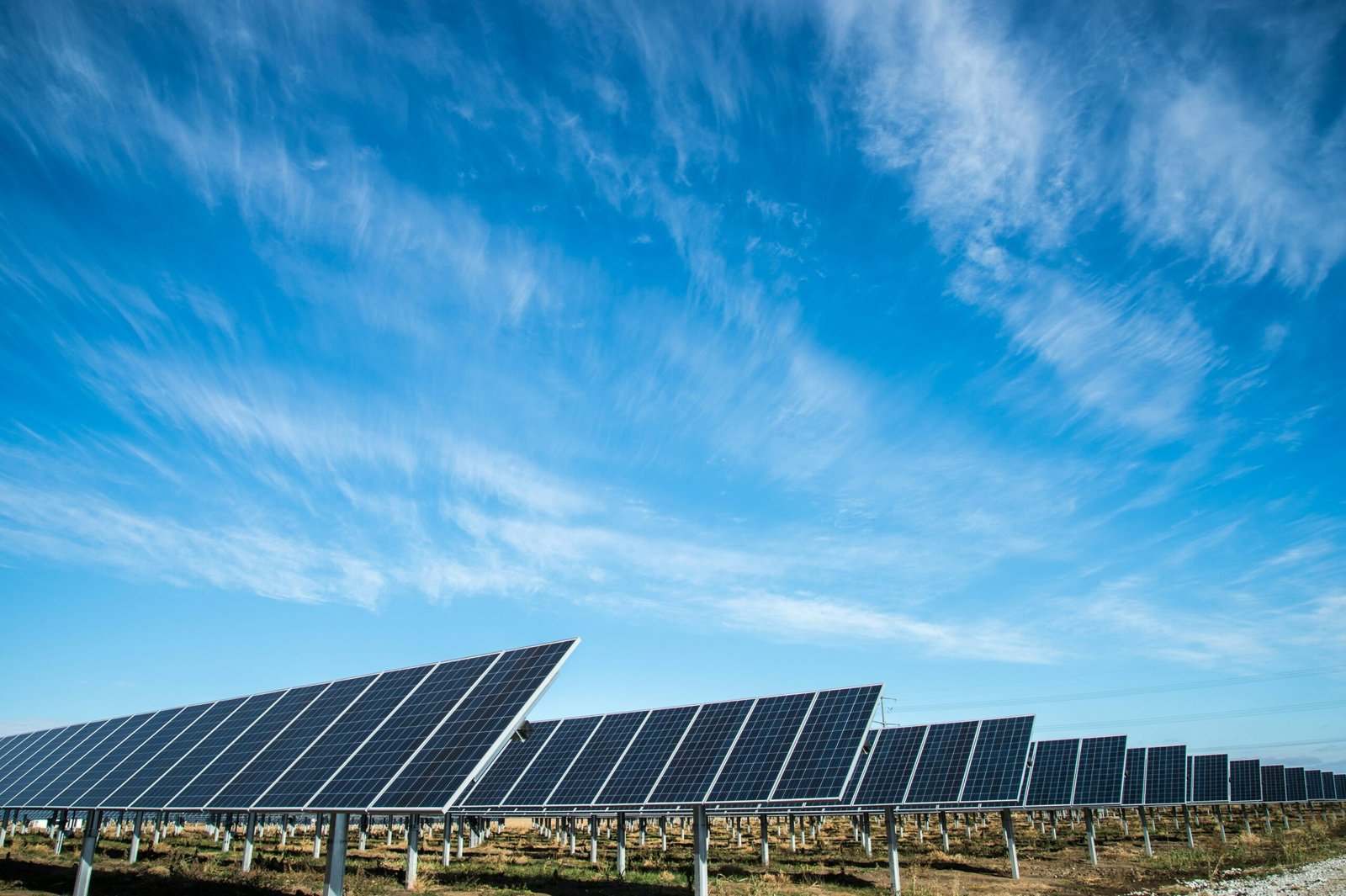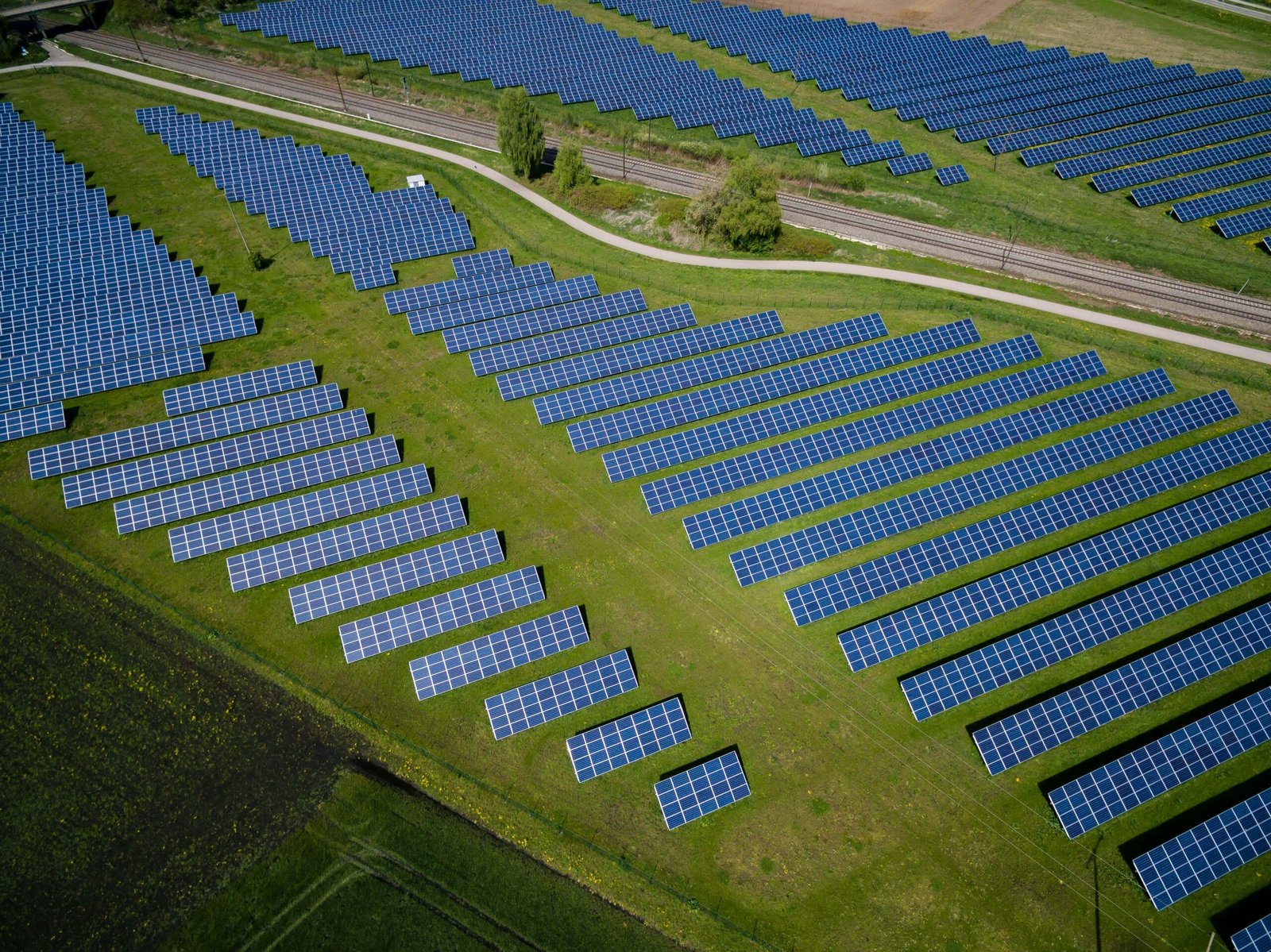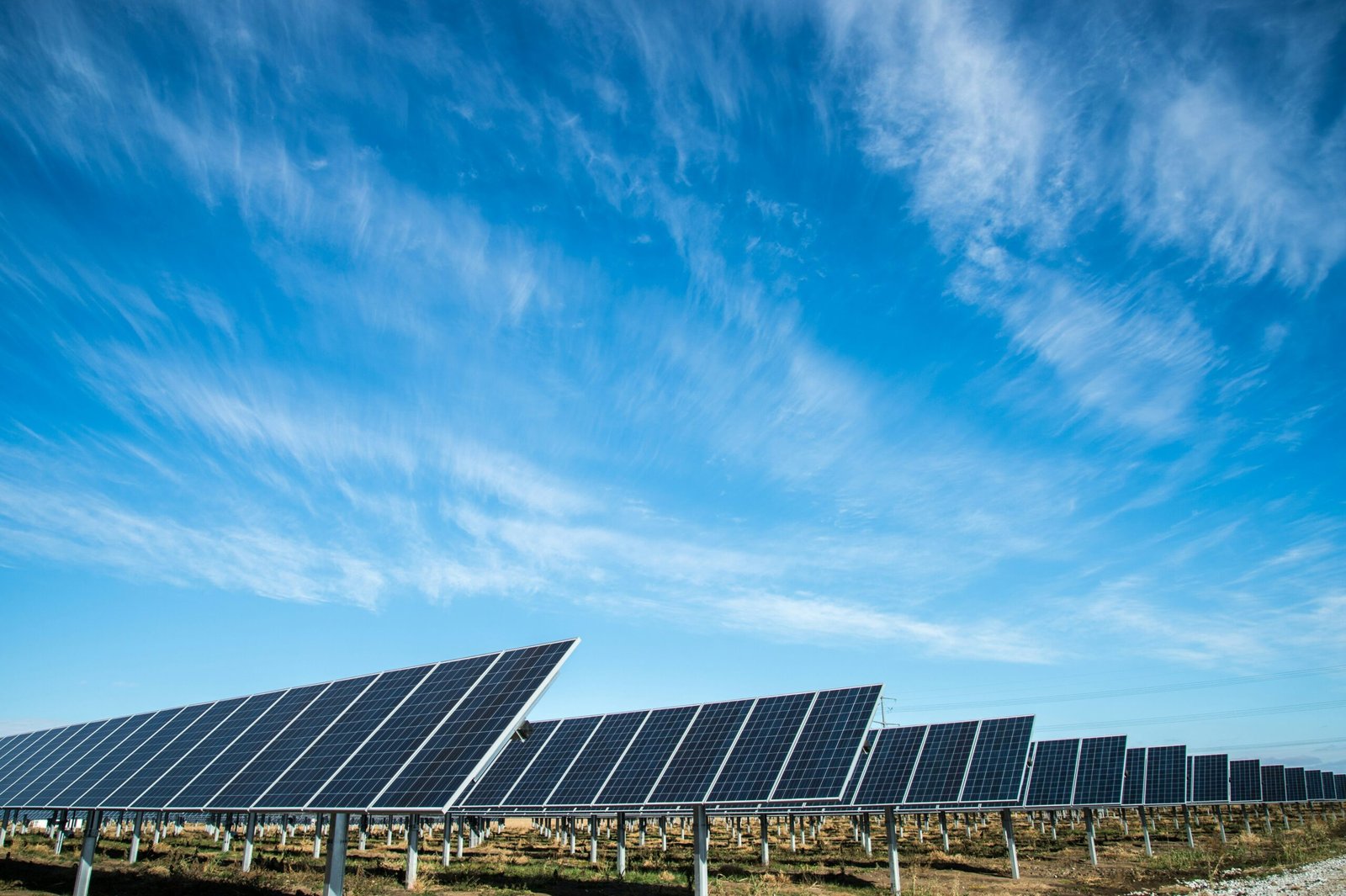Understanding Solar Energy
Solar energy, derived from the sun’s rays, is a renewable and sustainable source of power that has the potential to significantly reduce a business’s carbon footprint. At its core, solar energy is harnessed through the use of solar panels, which are composed of numerous photovoltaic (PV) cells. These cells are crucial in the conversion of sunlight into electricity. When sunlight hits a PV cell, it excites electrons within the cell, creating an electric current that can be used to power electrical devices and systems.
The technology behind solar panels has evolved significantly, making them more efficient and accessible. Photovoltaic cells are typically made from silicon, a semiconductor material that is abundant and cost-effective. When sunlight strikes the silicon cells, it knocks electrons loose, allowing them to flow freely. This flow of electrons generates direct current (DC) electricity. An inverter then converts this DC electricity into alternating current (AC) electricity, which is the standard form of electricity used in businesses and homes.
There are several types of solar energy systems available for businesses, each with its own set of advantages. Grid-tied systems are connected to the local utility grid, allowing businesses to use solar power when available and draw from the grid when necessary. These systems can also feed excess electricity back into the grid, potentially earning businesses credits or payments. Off-grid systems, on the other hand, are entirely independent of the utility grid. These systems typically include battery storage to ensure a continuous power supply, making them ideal for remote locations or businesses looking to achieve complete energy independence.
Hybrid systems combine the benefits of both grid-tied and off-grid systems. They are connected to the utility grid but also include battery storage. This setup allows businesses to store excess energy for later use, providing a backup power source during outages or periods of low sunlight. Hybrid systems offer flexibility and reliability, making them a popular choice for businesses looking to optimize their energy usage.
Understanding the fundamentals of solar energy and the various systems available is crucial for businesses considering this renewable energy source. By leveraging the power of the sun, businesses can reduce their carbon footprint, lower energy costs, and contribute to a more sustainable future.
Environmental Benefits of Solar Energy
Adopting solar energy presents numerous environmental benefits for businesses, fundamentally transforming how energy consumption impacts the planet. One of the primary advantages is the significant reduction in greenhouse gas emissions. By decreasing reliance on fossil fuels, businesses can lower their carbon footprints substantially. According to the Environmental Protection Agency (EPA), the average commercial building in the United States emits approximately 20 pounds of carbon dioxide per square foot annually. Transitioning to solar energy can reduce these emissions by up to 80%, illustrating a tangible impact on mitigating climate change.
Case studies further exemplify the benefits. For instance, a retail chain in California installed solar panels across its stores, resulting in a reduction of over 50,000 metric tons of CO2 emissions within a year. This is equivalent to removing nearly 10,000 cars from the road for a year. Such statistics underscore the potential of solar energy in fostering a more sustainable business model.
Beyond reducing greenhouse gas emissions, solar energy also diminishes air and water pollution. Traditional energy production often involves burning fossil fuels, releasing pollutants such as sulfur dioxide and nitrogen oxides, which contribute to smog and acid rain. Solar power generation, on the other hand, produces minimal air pollutants, leading to better air quality and public health outcomes. Additionally, solar energy systems do not require water for electricity generation, unlike coal and nuclear power plants, which consume vast amounts of water, often leading to thermal pollution and water scarcity.
Moreover, solar energy helps conserve natural resources. Fossil fuel extraction depletes finite resources and disrupts ecosystems. In contrast, solar energy harnesses sunlight, an abundant and renewable resource, ensuring that energy production does not compromise the planet’s ecological balance.
In conclusion, the environmental benefits of solar energy are multifaceted. By reducing greenhouse gas emissions, lowering air and water pollution, and conserving natural resources, solar energy offers businesses a viable path to sustainability and environmental stewardship. Embracing solar energy not only helps mitigate climate change but also paves the way for a cleaner, healthier planet.
Economic Advantages of Solar Energy for Businesses
Harnessing solar energy offers a multitude of economic advantages for businesses, starting with the potential for significant financial savings. Although the initial investment in solar energy systems can be substantial, several financing options can make this transition more manageable. Businesses can explore solar loans, which offer low-interest rates and flexible repayment terms, or consider solar leases and power purchase agreements (PPAs), which often require little to no upfront cost. These financing mechanisms allow businesses to adopt solar energy without a hefty initial expenditure, thereby facilitating a smoother transition to renewable energy.
Government incentives further enhance the attractiveness of solar energy investments. Various federal and state programs offer tax credits, rebates, and grants to businesses that invest in solar power. For instance, the Federal Investment Tax Credit (ITC) allows businesses to deduct a significant percentage of their solar installation costs from their federal taxes. State-specific incentives and local utility rebates can also substantially reduce the net cost of solar systems, making them more accessible to a wider range of businesses.
Beyond the initial financial incentives, the long-term savings associated with solar energy are substantial. Businesses can dramatically reduce their monthly energy bills by producing their own electricity, which can result in substantial cost savings over the lifespan of the solar installation. Moreover, the predictability of solar energy costs helps businesses better manage their long-term energy expenditures, shielding them from the volatility of traditional energy markets.
Additionally, investing in solar energy can increase property value. Properties equipped with solar panels are often more attractive to buyers, leading to higher resale values. This added value can further offset the initial investment costs, contributing to an overall positive return on investment.
Ultimately, the economic advantages of solar energy for businesses are clear. By reducing energy costs, leveraging government incentives, and enhancing property value, businesses not only contribute to environmental sustainability but also achieve significant financial benefits.
Implementing Solar Energy in Your Business
Transitioning to solar energy is a significant step towards reducing your business’s carbon footprint. The process begins with a comprehensive initial assessment, including energy audits and feasibility studies. Conducting an energy audit allows you to understand your current energy consumption patterns and identify areas where solar energy can be most effectively utilized. Feasibility studies will help determine whether your location and infrastructure are suitable for solar installations, taking into account factors such as roof space, shading, and local climate conditions.
Once the preliminary assessments are complete, the next step is selecting the appropriate solar energy system. This involves deciding between different types of solar panels, such as monocrystalline, polycrystalline, or thin-film, based on efficiency, cost, and aesthetic preferences. Additionally, you must consider the size of the system required to meet your energy needs. Consulting with a professional can provide valuable insights and ensure you choose a system that aligns with your business objectives and budget.
Finding a reputable installer is crucial for the successful implementation of your solar energy system. Look for installers with extensive experience, proper certifications, and positive customer reviews. Requesting multiple quotes and conducting thorough interviews can help you make an informed decision. A reputable installer will also assist you in navigating the permitting process, which involves securing necessary approvals from local authorities and utility companies. This step is vital to ensure compliance with regulations and to qualify for any available incentives or rebates.
Maintenance and monitoring are key to ensuring the long-term performance of your solar energy system. Regular maintenance, such as cleaning panels and checking for any physical damage, will help maintain efficiency. Furthermore, investing in a monitoring system can provide real-time data on energy production and system performance, allowing you to address any issues promptly and optimize energy savings.
By following these practical steps and seeking professional support, businesses can successfully implement solar energy solutions, ultimately contributing to a more sustainable future and reducing their carbon footprint.







